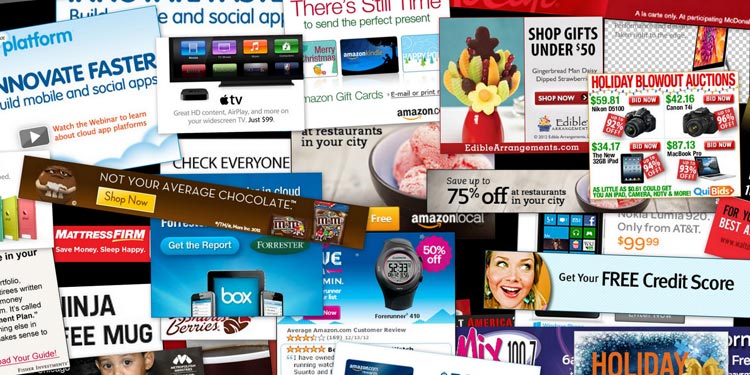By John Rehkop. When companies advertise online, they often do so in part because of the number of controls that come with it. Today’s sophisticated advertising platforms offer robust targeting capabilities that allow companies to reach customers and prospects in a very individual and Big Brother kind of way.
“Most people on the Internet understand that computers are controlling the ads,” says Glenn Nash of Charlotte-based GMN Advertising. “So the negative connotation (for companies) should be short-lived in most cases.”
But with the evolution of online advertising and advent of programmatic buying and third-party placement services, brands seemingly have less and less control over one thing: The content their ads are placed against.
Ads from major brands have been spotted on pornographic sites, alongside deceptive products and comingled with pirated or very low-quality content.
A 2014 US Senate Report called “Online Advertising and Hidden Hazards to Consumer Security and Data Privacy” found that ads often pass through five or six intermediaries before they wind up on a publisher’s site, increasing the complexity of an already intricate online advertising ecosystem.
These intermediaries, or “exchanges,” are typically other advertising companies that exist to collect user data and help advertisers target visitors as precisely as possible. The tangled grid of data sharing sites and algorithms that determine which ads to serve in a split second means a brand’s ads could theoretically show up anywhere, putting advertisers and website owners in awkward situations.
Small businesses into DIY advertising by posting on Facebook groups risk adjacencies around foul language and brutally tough audiences—witness the raucous Exit 28 Ridiculousness page.
Sometimes the context isn’t illicit, but it could be a juxtaposition with content that frames the brand as unethical or insensitive. One example of this ill-timed convergence is the Red Stripe “Hooray Beer” banner that was prominently placed adjacent to a story about an 11-year-old who was arrested for fleeing police and drunk driving.
The movement away from human involvement in ad placement has created a lack of accountability within the digital advertising industry.
When ad placements go awry, it can damage the reputation of the advertiser as well as the publisher, who may lose credibility as a trustworthy source of information.
However, some local industry executives believe the anonymous, “behind-the-curtain” nature of the Internet is factored into the public perception of poorly placed ads, which mitigates the damage to a brand. Says Nash: “Sometimes it can even have a positive effect in terms of (visitors) remembering the ad.”
One well-known brand that has come under fire in the past for its advertising practices and lack of safeguards is Facebook. Serving ads for counterfeit products and sharing user “likes” of “sponsored stories” without user permission are a couple of the recent claims that have drawn the ire of Facebook users and eroded trust in the brand. The social media giant was also victimized by a large affiliate marketing scam that led to false and deceptive ads being served on its network.
Although ad networks are major players in online advertising, not all online advertisements are delivered through ad networks. Many websites still sell their own advertisements directly to maintain control.
One of the biggest challenges for regulators, who continue to wrestle with the issues of data collection and online ad targeting, is getting their arms around this multifarious industry that has eclipsed national TV advertising in revenue, growing to nearly $43 billion in 2013.
In the meantime, companies weigh the advantages of digital advertising – robust targeting, real-time data and action-based pricing (pay-per-click) — against the quirks and glitches that come with a computer-run system. And for some brands, the lack of placement control has reacquainted them with the old advertising rule that states: where an ad appears is just as important as what it says.


Discussion
No comments yet.